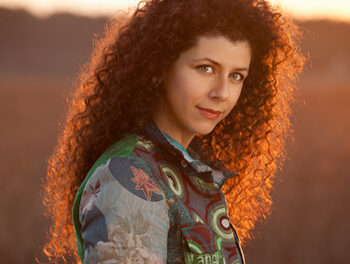Greensboro continues to surprise with its exceptional arts programs, and the Bel Canto Company‘s presentation of “Hot Days, Cool Nights” at Christ United Methodist Church was a testament to the thriving arts community in Greensboro. Dr. Welborn Young, director of Choral Activities at UNCG, led a thrilling program of songs that spanned across time and genres.
Things got off to a lively start with Thomas Weelkes’ “Hark, All Ye Lovely Saints Abound” and “Lay A Garland” by Robert Lucas Pearsall. Both were conducted by Liz Doebler. Both were a cappella and wonderfully sung. Right away I was impressed by how well the chorus sang, even without instrumental accompaniment.
Next up was a 14th century French song cycle, Les Chansons de Roses. Singing in a language completely different from the native tongue is no easy feat, but the intonation and diction in this cycle were exceptional, and nearly every syllable was clear to the ear. The counterpoint in the way the song was composed was also well done – no missed or mis-timed entrances here. I dare say it was the highlight of the first half of the program. This was also the first number that Dr. Young conducted; he would lead the proceedings through the rest of the evening.
Ireland has a wonderful tradition of folk music, and “Tell My Ma” was no exception. Richard Lowder’s tenor solo was very well done, and it was a great song to show off every section of the choir, especially the sopranos and altos. All around very enjoyable.
Capping off the first half of the program was Gillian Welch’s “Hard Times.” This was a wonderfully evocative piece of Southern America. It was another folk song, but very different from the Irish tune preceding it. Solos from Sarah Chowning, Tandy Brown, and James McClure added to the very moving song, and it was warmly applauded.
The second half of the program also started with a bit of traditional America, the hymn tune “Down in the River to Pray” by W.E. Young. The song was made popular in the film O Brother Where Art Thou? The choir started singing from the sides of the sanctuary, adding a very pleasing closeness with the music to the audience. As the song progressed, the vocalists moved to the risers up at the front. I feel that this only added to the effect of the piece, and the audience received it very well.
This evening was one of hymn tunes, and following the Young was the spiritual “Wade in de Water,” except this time it was done in a very jazzed-up idiom. It’s nice to hear an old tune that’s been dressed up in modern garb. I feel like it reaches to the audience more, and both of these songs brought back a sense of times long gone.
The next work on the program was yet another cycle, but markedly different from the French songs on the first half of the program. This time it was a set of William Shakespeare’s famous Sonnets. However, they were done in a near pop like language, very jazzy. Who would have ever thought The Bard would ever be this much fun? I found myself smiling after the performance of this piece, and the audience thought it to be wonderful as well.
The next two songs were standards of the repertoire: Duke Ellington’s “Satin Doll” and George and Ira Gershwin’s “Someone to Watch Over Me.” The Gershwin was a world premiere arrangement, done by UNCG jazz faculty member Chad Eby, who provided some lovely tenor saxophone playing. It was a very soothing arrangement, and choir and instruments (trap set and string bass) came together in a nicely blended package, making the new arrangement a success. If a CD was to be made of this concert, the Gershwin alone would be worth price of the whole album.
Following were two more Duke Ellington compositions: “It Don’t Mean a Thing” and “Solitude.” Both pieces were done with the utmost refinement, yet still feeling very free in style. The Duke would have been very proud. Most impressive was the scatting of the five soloists in “It Don’t Mean a Thing” – it provided a nice contrast to “Solitude” which was simply slow and gorgeous.
The program closed with two more hymns, yet again done in a contemporary setting: “Precious Lord” and “Joyful, Joyful” from Sister Act 2. Both hymns are wonderfully uplifting even in their original forms, and they brought the evening to a very satisfying close. Solos all around added to the excitement, and I must give due credit to these artists for not using microphones and still managing to soar above the choir. I fully look forward to the next Bel Canto concert, and I hope to see more people there. This choir is a truly exceptional cultural wonder.











